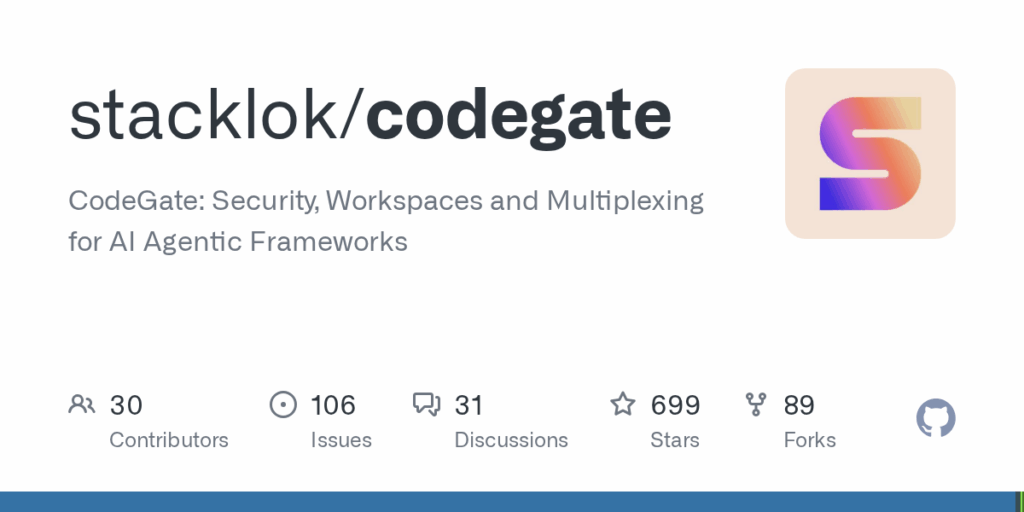codegate
Basic Information
CodeGate is an archived, privacy-first platform designed to centralize and secure AI coding assistants, agent frameworks, and model interactions. The repository provides the server and tooling to manage prompts, provider configurations, model muxing, workspaces, and histories so multiple AI tools and extensions can operate under a single, unified environment. It focuses on making AI-driven code recommendations safer by performing security-centric reviews and scanning dependencies, and by preventing accidental leakage of secrets or personal data. The project is distributed as a Docker container for local deployment and exposes a web dashboard for monitoring interactions and security findings. The README documents supported assistants and model providers and links to installation, dashboard access, and developer docs.








